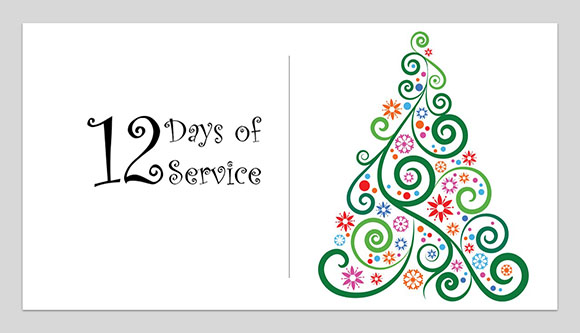Becoming New
2 Corinthians 5:6-10, 14-17
June 17, 2018
Today is Father’s Day and I am wearing my dad’s tie. My dad died from cancer just after I accepted the call here to New Philadelphia. He was diagnosed with Stage 4 lung cancer in early September 2016 and not even two months later, he died. I remember the day before his funeral. Kelly and I were out looking for some appropriate clothes for Zach to wear- even though he is a pastor’s kid (a double PK actually) he doesn’t often wear a jacket and tie. While we were shopping, I decided to look for a new tie for myself. But not just any old tie.
My dad was a lifelong Wake Forest fan. He graduated from Wake in 1965 and rarely missed a football or basketball game. That love of Wake Forest sports was definitely passed on to me, and I decided to look for a tie in old gold and black for his funeral. I looked in a number of stores but just couldn’t find the right tie. So decided to just wear one of my regular old ties.
The day of his funeral, Kelly and Zach and I were getting dressed at my parents house. And I just happened to look through my dad’s ties, where I found this one. It was EXACTLY the tie I had been looking for to wear. So I asked my mom if it was okay for me to wear it for the funeral. Of course she said yes. And that I should just keep it if I wanted it. It has become my favorite tie. I wear it on the most special and important of occasions; like Father’s Day.
As I was looking over the scriptures for today- I had really planned to focus on the OT or the Gospel lesson. I preached on 2 Corinthians two weeks ago and Worth used it last week, so it seemed like this week was a good chance to move on to something else. But as I read the verses from 2 Corinthians, and remembered that it was Father’s Day, I knew that I would HAVE to preach one more time on Paul’s second letter to the church in Corinth. It just fit too well to do anything else.
There are three phrases in those verses that have stuck in my mind all week: for we walk by faith, not by sight…For the love of Christ urges us on… and if anyone is in Christ, there is a new creation: everything old has passed away; see, everything has become new! I think that each one is special enough to spend a little bit of time on this morning.
When Paul wrote to the Corinthians that we walk by faith and not by sight, he was doing so as a way of affirming their belief in Jesus, even though they had not ever seen Jesus during his earthly life. For that matter, neither did Paul. And that was a bit of an issue for Paul. In those first decades after Jesus was crucified and died, then was resurrected and ascended into heaven, there was some controversy about the legitimacy of those believers who never knew Jesus in his earthly life, especially about those who called themselves “apostles” yet never knew Jesus. Those who knew Jesus while he walked on the earth wondered if someone who didn’t actually know Jesus in the same way that they did could preach the “true gospel” of Jesus.
Yet Paul did preach the true Gospel of Jesus and he wanted to assure those who heard it from him that it was okay, that he was a legitimate apostle. Paul also wanted to tell them that even though they had never seen Jesus, even though they didn’t know him they way that those who were with him did, they too were still true followers of Jesus. Their faith was just as genuine as the sight of others.
It may not seem like that big of a deal to us today. We are all like those followers of Jesus who didn’t ever know him. We are thousands of years and thousands of miles removed. We know that we don’t have to have seen Jesus to know Jesus. We all walk by faith and not by sight. While we don’t need to hear Paul’s words in the same way the believers in Corinth did and we don’t need them to reinforce our legitimacy as Christians, we still need to hear them. Because even though we have no doubt about our legitimacy as believers, we still need to remember that we walk by faith and not by sight.
For us, walking by faith and not by sight is not so much about our faith in who Jesus was and who Jesus is, it is more about what Jesus is going to do. It is about how Jesus is at work in our lives. The faith that we walk by is a faith in God who creates, redeems, and sustains his children. It is a faith that trusts in our God enough to know that every little thing is going to be alright.
This journey that we are on that we call our lives often seems like we are stumbling around in the dark. We don’t know what we are doing and we can’t see where we are going. Even though we can’t know or see the future, we know that God will continue creating, Jesus will always be redeeming, and the Spirit will constantly sustain us, as we walk by faith and not by sight and follow our Lord and Savior.
For the love of Christ urges us on… it’s not always easy to be a follower of Jesus. It’s hard to walk by faith and not by sight. The Apostle Paul knew this and we know it too. Paul faced many challenges and difficulties even after he encountered the risen Christ- maybe even especially after he became a Christian. As I mentioned before, his legitimacy and authority as an apostle was questioned and constantly challenged. And he suffered from what he called “a thorn in his flesh” that kept him humble and made his life difficult. He was not that different from us.
We have challenges and difficulties in our lives as followers of Jesus. We struggle with being in the world but not of the world. We are challenged by the call to love our neighbors as we love ourselves. And we even struggle to love ourselves; especially to love ourselves in the same way that God loves us.
We are often incapable of looking at ourselves and seeing us the way that God sees us. We see our faults and failings; and God sees them too. But unlike they do to us, they don’t matter that much to God. For God loves us unconditionally, despite our faults and failings. God looks at us and sees all of those things that we see in ourselves that make us unlovable; unlovable by ourselves or anyone else, yet alone by the Creator of the heavens and earth and all that it is. God looks at us and sees our faults and failings and God loves us anyway.
God loves us so much that he died for us. When God became human, when Jesus died on the cross, it was all done for us and for our salvation, so that we might not die but may have everlasting life. This is the love of Christ that Paul writes about. It is the love to urges us on… it urges us on to love each other and to love the world in the same way that we are loved. It is the love that urges us on to love each other, despite being keenly aware of each others faults and failings. The love of Christ urges us on to love each other anyway.
It urges us on to live, and to love, not for ourselves, but for others. Which brings us to the last phrase from 2 Corinthians that has held my attention this week “So if anyone is in Christ, there is a new creation: everything old has passed away; see, everything has become new!” This is the one that convinced me to preach one more week on this same letter. Because this is the one that reminded me so much of my dad.
For my brother and sister and I, we knew that we were loved unconditionally, supported and encouraged in all our endeavours. We were urged on by his love. My dad had a way about him that made it comfortable to be around him, even when there were no words to be said. When you were in his presence, you just knew that you were loved and accepted and valued and safe.
In addition to being a great father to me and my brother and sister, my dad was a “father” to many other boys, and later to many other men and women. He spent his life helping others to see themselves as the “new creation” in Christ that they are meant to be. Much of my dad’s career was spent as the director of the Winston-Salem Boys’ Club. It was those same gifts that he shared with us that enabled him to be a second father to countless boys who desperately needed a positive male influence in their lives. As he did with his own children, he loved them into seeing themselves as new creations in Christ.
After leaving the Boys’ Club, he went to work at Prodigals Community, which was a recovery community for people struggling to overcome addiction. At Prodigals, he helped many men and women to know that they were beloved children of God, that they were loved and forgiven- unconditionally and completely. It was at Prodigals where dad became the true representation of the Father as he greeted God’s beloved children and welcomed them home to the love that they desperately needed, greatly desired, and so deeply longed for.
My dad helped countless people to be able to see themselves as God sees them; he helped them to claim their identity as a child of God. No longer are they defined by their faults and failings, but they are “new creations” in Christ, everything old has passed away- all of the sins and shortcomings, all of the selfishness and striving to fit into the world, all of that is gone and we are made new.
I used the word “we” intentionally. For it is not just fatherless boys and substance addicted men and women who need to know that they are loved. It is not just them who need to see the old pass away and all things made new. This is something that we all need. We all need to claim our identity as new creations, as God’s beloved children.
I don’t want you to leave here thinking that my father was some kind of saint. He was a great man but he also had his own faults and failings. However, he didn’t allow those faults and failings to prevent him from seeing himself and others as God’s beloved children. On this Father’s Day, I know how very blessed that I am to have had a father who helped me to see and know this. But I also know that many aren’t as fortunate as I am. Many people struggle with Father’s Day. Either because their father’s are no longer with them (like me) or because their fathers have never been with them or, even worse, they had fathers who were the exact opposite of what a father is supposed to be.
Yet I also know that God gives us a father. Maybe not in the men who caused us to be born or who were married to our mothers, but God gives us at least one man in our life who fills that role of father, who helps us to walk by faith and not by sight, who urges us on with the love of Christ, who helps us to see ourselves as new creations in Christ.
So on this Father’s Day, just like I wear this tie to honor and remember my father and to give thanks to God for giving him to me, I want us all to take a moment to honor and remember our fathers, and give thanks to God for sharing them with us. Whether it is our actual father or another who was or is like a father to us; they are indeed a gift of God.
And even as we give thanks, let us also be challenged to be like them; to do for others as they have done for us. For we all need those people in our lives who see us as God sees us and who help us to become who God has created us to be. And we are all called to be those people to each other and to the world. It doesn’t take being a father or a mother, but it does take the being able to love like a father or a mother, it takes being able to love each other as we are loved by God- who creates us, redeems us and sustains us. It takes someone who knows that they are a new creation in Christ and wants to help others know that they too are new creations in Christ. So let us urge each other on with the love of Christ as we walk by faith in that love.
Amen












